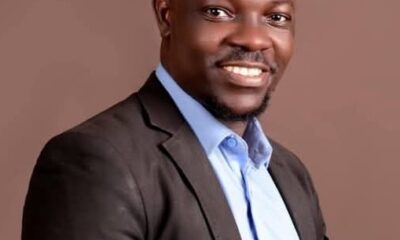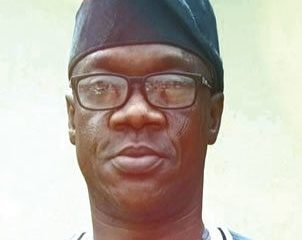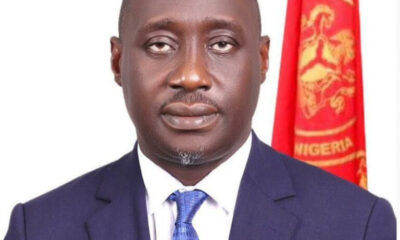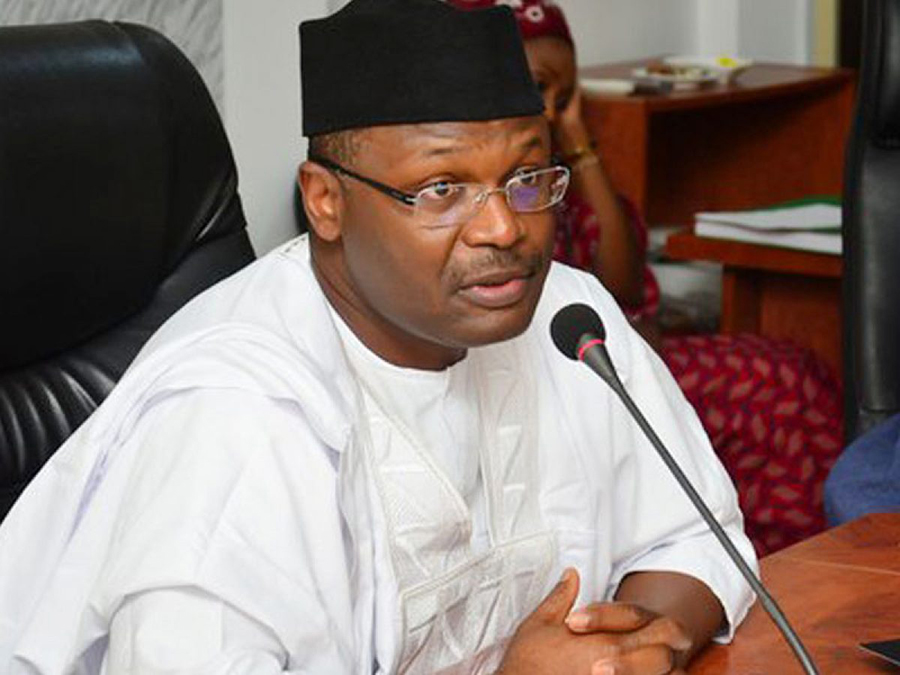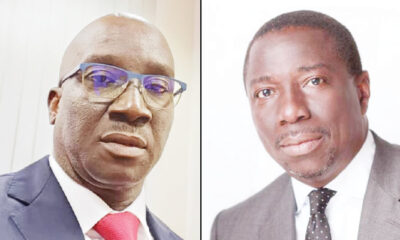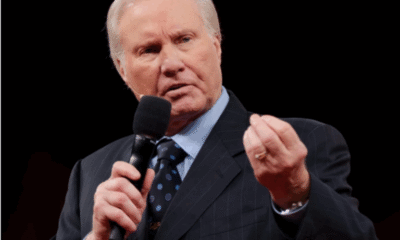News
Ebenezer Obey: Unstoppable Flight Of Destiny (1) [OPINION ]
Published
2 years agoon
By
Editor
Tunde Odesola
The newborn arrives the world knuckled up. In his clenched right fist is fate. In the left is destiny. Little wonder life is a struggle between fate and destiny. Fate is one-way; destiny is itinerant. Fate slams shut like a coffin, sealed, airtight, with a finality; destiny is open like a shelf containing storybooks portraying bad and good characters.
In the Greek classic tragedy, ‘Oedipus Rex’, which Ola Rotimi robes in African culture, to produce ‘The gods are not to blame’, youthful Odewale, by his strength and magical powers, goes on the destined road to greatness but his inescapable fate was already cemented by the gods, who had decreed he would kill his father and marry his mother. For Odewale, fate is optionless but destiny is optional. It goes to say that Man’s conquest of his weakness, his Achilles heel, is the ultimate hope in triumphing over the gods who are never to blame. Fate is divine, free will is mankind.
It is destiny that irresistibly attracts a toddler to football. Fate makes him emerge as a World Cup winner. Lionel Messi comes to mind. Destiny magnetises a youngster to life in the military, fate kills him in a coup or propels him to power thereafter. General Murtala Muhammed and General Olusegun Obasanjo come to mind.
Explaining the Yoruba worldview on fate and free will, a Professor of Yoruba Language and Literature, Wande Abimbola, said in a telephone interview with me that fate is ‘Orí’ or ‘Àyànmó’ while he described free will as ‘Ìwà’, known in English as character or behaviour.
Abimbola, a former Vice Chancellor, Obafemi Awolowo University, said, “Western philosophy doesn’t believe fate is alterable but Yoruba philosophy believes fate could be slightly changed, at least, to make it sufferable. The Yoruba believe that fate could be changed through sacrifice, which can lessen an unfortunate fate.”
Speaking with me on the phone, the Araba of Osogbo, Chief Ifayemi Elebuibon, said fate ‘is what will happen’, adding that destiny is ‘what a man came into the world to do’. He summarises the finality of fate in a proverb, “Lè s’ebo, lè s’ògùn, bá ti wáyé pé aó rí, ni aó rí.”
FROM THE AUTHOR: OPINION: Oyinlola Keeps His Promise Despite Tinubu’s Victory (2)
I believe most success stories begin with a passion, followed by dedication and consistency. Focus is the headlamp in the journey to greatness. The seed of greatness can sprout on a rock or in water just as white pap comes forth from the sooty pot. Legends are not town-specific, I daresay.
Despite advancements in science and technology, the essence of life is depreciating daily. Values are eroding, creating gullies in morality, with danger lurking in the blinding darkness called the future. Today, rats no longer squeak like rats. Birds no longer chirp like birds. Even the colours of the rainbow are no longer seven.
To lie idle, Odewale says in ‘The gods are not to blame’, is to be crippled fast. Nigeria will not be crippled fast if Nigerians start the journey to redemption now. Let’s go!
“Let’s go!” That’s the catchphrase of Chief Commander Ebenezer Obey to his band members whenever the stage is set, his fans are waiting, the atmosphere is charged, and the big masquerader is ready to enter the arena of spectacle.
At birth, fate set him up for greatness, making his Owu mother break water in a Methodist Church, 81 years ago, in Ìdògò, a Yewa community of Ogun State. On the eighth day, he was christened Ebenezer Remilekun Aremu Olasupo Fabiyi.
FROM THE AUTHOR: OPINION: Travelling Through Nigeria In Tinubu’s Yacht
As a toddler on all fours, destiny ceaselessly crawled Ebenezer towards the choir’s pew, where he would gaze at the drums in wonderment, giggling widely, exposing his toothless gums, drooling and shaking his legs and feet in excitement. His mother would grab him and take him far away from the drums, only for him to crawl back there before his mother caught her breath. The pastor of the church, who saw the mother’s up and down movement, took the little boy from her, prayed for him and prophesied that he would grow up to be a musician.
The mother didn’t say amen to the prayer for she wished for her son to be a medical doctor or a lawyer instead because, in her view, it was the only way he could ride a ‘pleasure car’ or go to England, Ilu Oba.
Years later, he joined the choir and rose to lead it as destined. Exhibiting exemplary leadership qualities, he also became the leader of his primary school band in Ìdògò, making the title, Commander, which he acquired much later, an affirmation of his organisational and leadership traits.
Obey, the name that eclipsed his surname, Fabiyi, wasn’t given by his parents. Obey was a name that stuck in primary school when he was a class monitor. In those days, teachers didn’t brook explanations from truant or dim-witted students, whose palms, backs and buttocks they flogged amid shouts of ‘Obey before complain!’ As a class monitor, Ebenezer would re-echo ‘obey before complain’ as the teacher’s cane stung palms, backs and buttocks, rupturing the skin. Thus Ebenezer got his Obey from ensuring obedience, more than 60 decades before ‘Obidient’ became a political movement in Nigeria.
FROM THE AUTHOR: OPINION: Ellupee Lawmakers Refuse Shishi, Collect Exotic Cars
Obey knew he couldn’t do music in Ìdògò under the same roof with his disciplinarian mother. So, he set his sights on Lagos, where his father worked, and as soon as he finished primary school, he left the village for the city. Though his father was also strict, Lagos provided an irresistible opportunity to learn, play and grow in music.
As a teenager, he plodded the streets of Lagos in the early 50s, going home to sleep at night but always on the lookout for any place where music was being played.
However, before moving to Lagos, Obey cut his music teeth in his village with the Ifelodun Mambo Orchestra formed by some Ìdògò elders, including his kinsman, Sabitu Ayinla Fasaasi aka Vasco Da Gama, whom Obey highly respects to date on account of being seven years older than him. Obey later invited Vasco Da Gama to join his band which he formed in Lagos, in 1957.
Speaking with me in a telephone chat, a journalist, music historian and popular content creator, Dele Adeyanju, who had done intensive research into the evolution of various Nigerian musical genres, expressed the need to preserve the origins of Nigerian music forms.
Adeyanju had done extensive interviews with leading Nigerian musicians who included the late Fatai Rolling Dollar, King Sunny Ade, Sir Shina Peters, and Segun Adewale, among others. His interview with Obey, in particular, provides answers to the journey of Juju music from the days of Agidigbo music percussion to the tonnes of sacrifices made by budding musicians before success came smiling. Adeyanju’s online TV is called Agbaletu.
The reigning music at the time, Agidigbo, was what Chief Commander played when he first got to Lagos. When he wanted to learn the ‘agidigbo’, it was to Fatai Rolling Dollar that Obey turned, and the former, who later became his master, taught him how to play the agidigbo with five fingers, an unimaginable feat in that era because every popular musician played the agidigbo ‘expertly’ with two fingers.
Life is lived in phases. This fact throws up the following questions: What’s the meaning of Juju music? Who created Juju music? What challenges did Obey face during the evolution of his band?
• To be continued.
Email: tundeodes2003@yahoo.com
Facebook: @Tunde Odesola
X: @Tunde_Odesola
You may like
News
Police Pension Scheme Violates Constitution, IHRC Tells Tinubu
Published
2 hours agoon
July 5, 2025By
Editor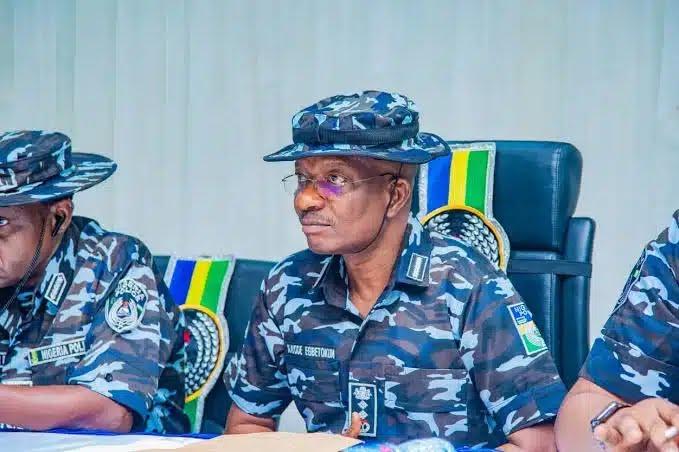
The International Human Rights Commission, Nigeria, has thrown its weight behind the renewed push by the Inspector-General of Police, Kayode Egbetokun, for a comprehensive reform of the Contributory Pension Scheme, as it affects retired officers of the Nigeria Police Force.
This is contained in a diplomatic memo addressed to President Bola Tinubu and titled “A Diplomatic Appeal for Police Pension Welfare Reform in Line with the Constitution of the Federal Republic of Nigeria.”
In a statement signed on Saturday by IHRC’s Head of Media and Strategic Communications, Fidelis Onakpoma, the commission said the current pension arrangement for police personnel amounts to a constitutional breach and urged the President to take urgent corrective action.
The Head of Mission, IHRC , Ambassador Duru Hezekiah, was quoted in the statement as saying, “The commission firmly supports the Inspector-General of Police’s ongoing advocacy for a just and equitable pension scheme for retired police officers.
“We call on President Tinubu to urgently address the systemic flaws in the Contributory Pension Scheme, which violate constitutional provisions guaranteeing dignity and adequate social support for public officers.”
READ ALSO:Human Trafficking: Police Rescue 40 Ghanaians, Arrest Three In Ondo
Citing Sections 17(3)(f) and 34(1)(a) of the 1999 Constitution (as amended), IHRC said the Nigerian state is legally bound to ensure the welfare and dignity of its retired officers, a responsibility it is currently failing in.
According to the commission, thousands of retired police officers are living in hardship under a pension system that disregards the realities of law enforcement service.
“The Constitution mandates the state to ensure the wellbeing of retired officers, not to abandon them to a broken system.
“The current structure of the CPS as applied to the police is inadequate, unfair, and incompatible with Nigeria’s constitutional values. These officers spent their lives in service—often in the face of extreme danger—yet they retire into poverty and indignity,” the IHRC stated.
The commission’s intervention follows a high-level meeting convened by the IGP on July 1, 2025, at the Force Headquarters in Abuja.
READ ALSO:Police Arrest Cleric Over Alleged Defilement Of Underage Girl In Osun
The meeting brought together delegations from the National Association of Retired Police Officers of Nigeria, led by AIG Paul O. Ochonu (retd.), and the Coalition of CPS Retirees, led by CP Henry Njoku (retd.), to address mounting concerns over pension inadequacies.
During the meeting, Egbetokun reiterated his resolve to push for a more just and practical pension structure, describing the current system as a gross injustice.
“Our retirees deserve dignity, support, and a structure that reflects their sacrifice and service to Nigeria.
“We cannot continue to subject our heroes to a pension scheme that is clearly unfit for the nature of their work and the risks they bore,” the IG declared.
Egbetokun’s comments echoed sentiments he had expressed earlier in February during an interactive session with retired officers at the Police Resource Centre in Abuja, where he criticized the CPS as “deeply flawed and unfit for the realities of Police service.”
READ ALSO:NMA Gives FG 21 Days To Avert Doctors’ Strike
The IHRC amplified this concern, highlighting what it described as an unjust disparity between Police and military retirees.
While the latter are exempted from the CPS and benefit from a more suitable pension arrangement, police retirees, the commission said, continue to suffer from a scheme that fails to provide basic security in old age.
“The military has rightly been removed from the CPS because of the peculiar nature of their job. The same logic applies—if not more so—to police personnel.
“Our police officers risk their lives daily, and they deserve a pension structure that reflects that reality. Anything less is an affront to justice, equity, and national security,” said Hezekiah.
In line with Tinubu’s Renewed Hope Agenda, the IHRC urged the Presidency to act decisively in addressing the disparity and upholding the constitutional and moral obligations of the state to its law enforcement agents.
“Reforming the police pension structure is not merely a policy issue—it is a constitutional and moral obligation. We believe this government has the opportunity to right this historical wrong and restore dignity to our Police retirees,” the statement read.
(PUNCH)
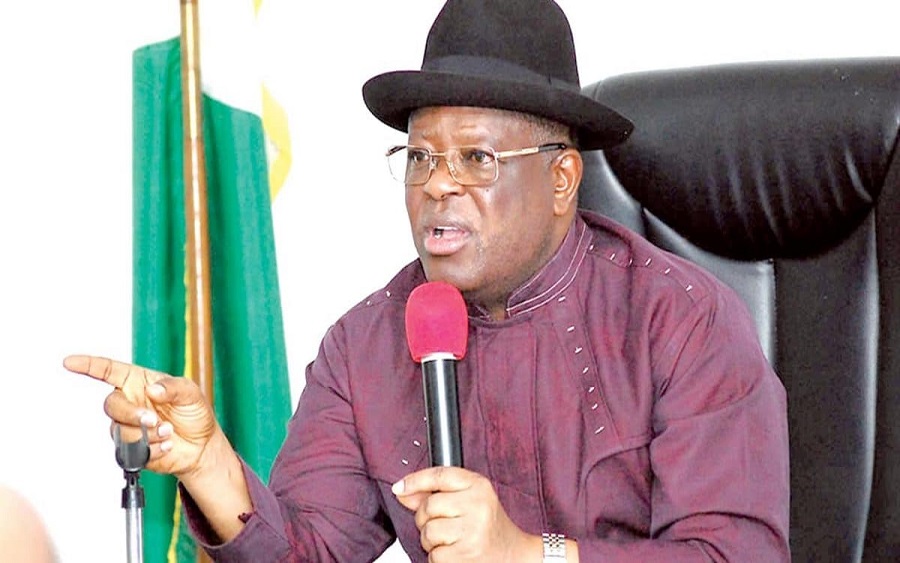
The Federal Government has negotiated the cost of the Iddo Bridge rehabilitation from an initial N27bn to N17bn.
The Minister of Works, Sen. Dave Umahi, made this known to journalists during an inspection of the bridge on Friday in Lagos.
He said, “Julius Berger quoted, I think, N27 billion or thereabout, but after much negotiation and discussion, we now arrived at N17 billion.”
Umahi commended Julius Berger Nig. Plc. for demonstrating a sense of cooperation under its new leadership.
He described the company as a “born-again Berger”, attributing the breakthrough in negotiation to the understanding and openness of its new managing director.
READ ALSO:FG Gives Overstaying Foreigners Ultimatum To Regularise Visa
The minister reiterated the government’s commitment to prudent spending, insisting that all contractors must align with the ministry’s standards and directives.
Umahi noted that the project had been reviewed from mere rehabilitation of the burnt section to a major work.
He expressed concern over the poor condition of the bridge, blaming it on years of neglect and human abuse, including illegal occupation and collisions by heavy-duty trucks.
He said that three spans of the bridge were severely damaged by fire, which he attributed to activities of illegal occupants who had built makeshift homes under the bridge.
READ ALSO:FG Closes Case In Alleged Terrorism Trial Against Nnamdi Kanu
“They brought in chemicals, built block walls and set up homes. Then, they set up fire that burnt the bridge and damaged three spans. Now we are going to fix the bridge completely,” Umahi said.
The minister said the Iddo Bridge, now with a headroom of about 4.5 metres, had suffered significant structural damage due to continuous hits from trucks and illegal structures beneath it.
He announced that the ministry would be creating a headroom of at least 5.6 metres.
He said that the Federal Ministry of Works was committed to restoring the bridge for the safety of all Nigerians and ensuring such incidents would not occur again.
READ ALSO:NMA Gives FG 21 Days To Avert Doctors’ Strike
On the issue of displaced persons, the minister said that no one would be allowed to return under the bridge.
“Nobody will stay under Iddo Bridge again as long as I remain the Minister of Works.
“The lives of the people are more important,” he said.
He warned that the government would no longer tolerate any abuse of national infrastructure.
NAN
News
Ex-Army Chief Proposes Mandatory Military Training For Nigerians
Published
2 hours agoon
July 5, 2025By
Editor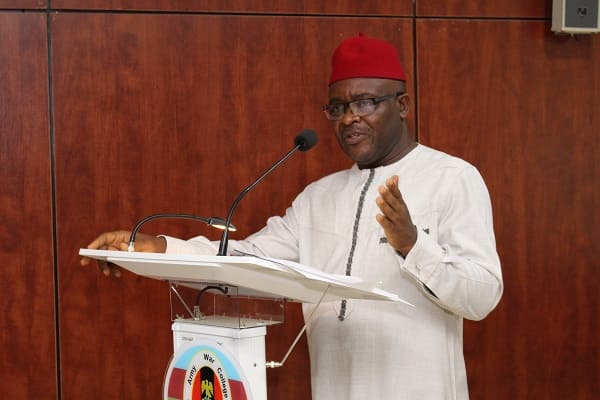
A former Chief of Army Staff, Lt.-Gen. Azubuike Ihejirika (retd.), has called for the introduction of mandatory military training for all Nigerians, beginning with the National Youth Service Corps.
This, he said, is a way of promoting national unity, discipline, and resilience in the face of growing security and social challenges.
Ihejirika made the call on Friday night at the 50th anniversary of the Nigerian Defence Academy Regular Course 18 Alumni Association in Abuja.
He reflected on his early days in military service and the camaraderie built over the years with fellow officers.
READ ALSO:FULL LIST: Nigeria Emerges As Africa’s Third Most Formidable Military Force
The former Army chief said the discipline and patriotism instilled in them during training were instrumental in shaping their careers and national contributions.
“Given the current situation of things in our country, I believe it’s time we start thinking about mandatory military training for our citizens.
“We can start with the National Youth Service. This will help us build a generation of Nigerians who understand sacrifice, responsibility, and patriotism,” he said.
Ihejirika praised the government’s decision to restore the old national anthem, saying it reinforces the spirit of unity.
READ ALSO:
He emphasised that the line “Though tribe and tongue may differ, in brotherhood we stand” perfectly captures the essence of national service and shared identity.
He also expressed concern over how the national anthem is now reduced to mere fanfare at official events.
“It should be a daily reminder of our oath of allegiance. It must return to schools, communities, and national ceremonies,” he said.
Drawing from his own life experience, Ihejirika recounted his humble beginnings from his village in Abia and how military discipline transformed him.
He credited the support of colleagues and mentors for his successful career, which culminated in his appointment as Nigeria’s 22nd Chief of Army Staff.
READ ALSO:542 Senior Military Officers Retire
Beyond his advocacy, the retired general also commended the current leadership of the Nigerian Armed Forces, describing them as highly experienced and well-trained.
“Many of the officers leading today served in Liberia, Sierra Leone, and other conflict zones.
“They have earned their stars through real battle experience and are doing remarkably well,” he added.
He urged Nigerian leaders at all levels to prioritise peace and stability, reminding them that no office or position is sustainable in the absence of national unity.
The News Agency of Nigeria reports that the dinner had in attendance the Minister of State for Defence, Chief of Defence Staff and representatives of service chiefs amongst other dignitaries.
NAN
- Police Pension Scheme Violates Constitution, IHRC Tells Tinubu
- FG To Spend N17bn On Lagos Bridge Damaged By Fire
- Ex-Army Chief Proposes Mandatory Military Training For Nigerians
- Australian Actor Julian McMahon Is Dead
- Thai Police Rescue Eight-year-old Boy Living With Dogs, Unable To Speak
- Oyo Fixes Date For Common Entrance Exam
- ‘He Wants To Keep Killing People,’ Trump ‘Very Unhappy’ After Phone Discussion With Putin On Ukraine
- Human Trafficking: Police Rescue 40 Ghanaians, Arrest Three In Ondo
- Fuel Station Manager, Three Others Arrested For Robbery
- Police Arrest Cleric Over Alleged Defilement Of Underage Girl In Osun
About Us
Trending

 Sports3 days ago
Sports3 days agoBREAKING: Liverpool Star Diogo Jota Is Dead

 News4 days ago
News4 days agoSenator Withdraws From Legislative Duties Over Health Challenge

 Politics4 days ago
Politics4 days agoINEC Unveils 2025-2026 Election Timetable, Resumes Voter Registration

 Headline4 days ago
Headline4 days agoUS-based Lawyer Becomes First Nigerian To Travel To Space

 Politics3 days ago
Politics3 days agoEdo: S’Court Reserves Verdict On Ighodalo’s Case Against Okpebholo

 Metro4 days ago
Metro4 days agoCleric Jailed 53 years For Sexually Assaulting 14-year-old Daughter

 Headline4 days ago
Headline4 days agoTelevangelist, Jimmy Swaggart, Is Dead

 Headline4 days ago
Headline4 days agoAU Helicopter Crashes In Somali Capital – State Media

 News4 days ago
News4 days agoCAC Unveils AI-powered Portal For 30-minute Company Registrations

 Metro3 days ago
Metro3 days agoControversy Over Pregnant Woman Buried Alive In Edo


